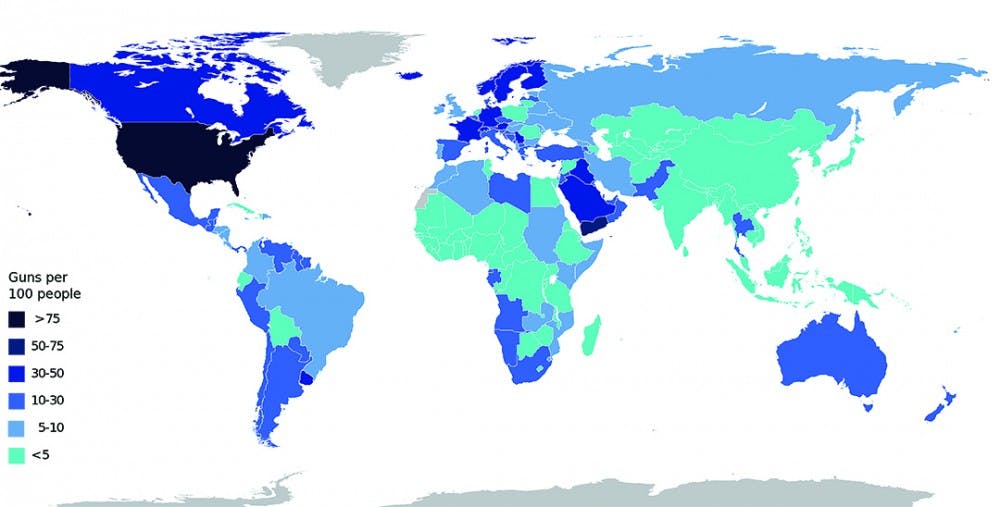A reporter and her cameraman in Roanoke, Virginia were shot dead by a former coworker on Aug. 26th. Local news station WDBJ-TV reporter Alison Parker and cameraman Adam Ward were in the middle of a live broadcast interview when Vester Lee Flanagan II showed up unannounced and pulled out his gun, according to the New York Post.
After the manhunt ended in Flanagan dying at a hospital from self-inflicted gunshot wounds, many started to speculate what would possess someone take the lives of the young and talented Parker and Ward.
As reports came out showing that Flanagan was fired and escorted out by security afterward, it became apparent that Flanagan had a few loose screws. He was triggered by words such as “swinging” or “in the field,” common TV news lingo that Flanagan took as racist comments referring to slavery, as he was African American, according to the New York Post.
Virginia Gov. Terry McAuliffe spoke in front of reporters regarding the WDBJ-TV shootings. “There are too many guns in America, and there’s clearly too many guns in the wrong hands,” McAuliffe said. He is promising new gun regulations in the state of Virginia.
According to the Washington Post, there are three widely spread proposals for new gun laws: background checks for all gun holders, banning the mentally ill from possessing a firearm and creating a federal database.
Many recent surveys show a high spike in backing the three proposals due to recent events, such as the church shooting in Charleston, South Carolina and a movie shooting in Lafayette, Louisiana. Some speculate that the spike would not be there if those events had not just occurred, but as a country, when are we not talking about the latest shooting?
Results from a Global Burden of Disease Study in 2010 show that the U.S had higher firearm homicide rates than any other high-income country.
In 2013, the Atlantic Magazine compared some of the U.S’s largest cities to other nations around the world. For instance, it states that New Orleans, Louisiana, which had about 62.1 deaths per 100,000 people at the time, would rank second in the world if it were its own country. The Atlantic also compares Baltimore, Maryland to Guatemala’s firearm homicide rate.
Almost daily, I turn on the news and see yet another story of gun violence. So yes, the support for the new gun laws has risen, only because people are seeing that there is a problem, and we can try to fix it.
Those against changing gun laws claim it is attacking their right to keep and bear arms, stated in the Second Amendment of the U.S Constitution. If you are not doing anything wrong, are mentally sane and are following the laws, there is no reason why these proposals would take away your right to bear arms.
The only harm these gun laws would cause would be for those who are breaking the law or should not have access to a gun.
This is not to say that this would fix all of our problems as a country. But, should we not try to do something beneficial for our people? Think of all of the innocent lives that may have been saved if their killer would have been denied a gun.
As we have before, and will continue to do so in the future, we should consider looking into how Australia’s buyback of guns has affected the nation, almost 20 years later. After a horrific mass shooting, Australia’s prime minister at the time, John Howard, decided that the nation had too many guns.
His gun buyback eliminated more than 650,000 guns, according to Vox.com, and they have not had another mass shooting since. Homicide and suicide rates dropped dramatically.
This may not work as well in the U.S., but what does it hurt to try?
When you can walk down the street to your local Wal-Mart and decide to buy a gun with your groceries, you know there is a problem. With a gun comes great responsibility; you should not be able to just grab one and go.
I am tired of gun deaths being a norm. How many firearm tragedies will we continue mourn over until we decide as a whole nation that enough is enough?


The Slate welcomes thoughtful discussion on all of our stories, but please keep comments civil and on-topic. Read our full guidelines here.